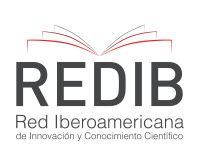Association between older maternal age and adverse perinatal outcomes in a university clinic in Cartagena, Colombia, 2012. A retrospective cohort study
DOI:
https://doi.org/10.18597/rcog.22Keywords:
Older maternal age, foetal demise, perinatal asphyxiaAbstract
Objective: To evaluate the potential association between older maternal age and adverse perinatal outcomes.
Materials and methods: Observational historical cohort study of pregnant women delivered during 2012 at the San Juan de Dios University Clinic in Cartagena, a private, level III general care institution. Sample size: 160 patients per group based on an expected frequency of foetal demise of 22% in the exposed group and 10% in the non-exposed group, a 95% confidence interval, and a power of 80%, the number of patients required in each group was 160. A simple random assignment was used. Demographic variables, gestational age at the time of delivery, weight and height of the neonates, 5 minute Apgar, and route of delivery were measured. Foetal death in utero was considered as the primary perinatal adverse outcome, and preterm delivery and perinatal asphyxia were considered as secondary adverse outcomes. The baseline characteristics of the two groups are described. Relative risk (RR) and the corresponding 95% confidence interval were estimated in order to assess the association with the outcomes.
Results: The relative risk (RR) of intrauterine foetal demise given older maternal age was 1.33; 95% CI (0.59-2.99). The RR of prematurity given older maternal age was 0.94; 95% CI (0.42-2.05); and the RR of perinatal asphyxia given older maternal age was 0.96; 95% CI (0.66-1.39).
Conclusion: Maternal age was not found to be a risk factor for poor perinatal outcomes.
Author Biography
Edgar E. Rivas-Perdomo
References
Yogev Y, Melamed N, Bardin R, Tenenbaum-Gavish K, Ben-Shitrit G, Ben-Haroush A. Pregnancy outcome at extremely advanced maternal age. Am J Obstet Gynecol. 2010;203:558.e1-7.
Wang Y, Tanbo T, Abyholm T, Henriksen T. The impact of advanced maternal age and parity on obstetric and perinatal outcomes in singleton gestations. Arch Gynecol Obstet. 2011;284:31-7.
Eisenberg V, Schenker J. Pregnancy in the older woman: scientific and ethical aspects. Int J Gynaecol Obstet. 1997;56:163-9.
Departamento Administrativo Nacional de Estadística (DANE). Estadísticas vitales nacimientos año 2011. [Visitado 2015 Ago 21]. Disponible en: http://www.dane.gov.co/index.php/esp/component/content/article/118-demograficas/estadisticas-vitales/2871-nacimientos-2011-preliminar.
Hoffman MC, Jeffers S, Carter J, Duthely L, Cotter A. Pregnancy at or beyond age 40 years is associated with an increased risk of fetal death and other adverse outcomes. Am J Obstet Gynecol. 2007;196:e11-e13.
Obregón L. Primigesta de edad avanzada. Rev Obstet Ginecol Venez. 2007;67:152-66.
Donoso E, Villarroel L. Edad materna avanzada y riesgo reproductivo. Rev Méd Chile. 2003;131:55-9.
Suzuki S, Miyake H. Obstetric outcomes in nulliparous women aged 35 and over with singleton pregnancies conceived by in vitro fertilization. Arch Gynecol Obstet. 2008;277:225-7.
Oleszczuk JJ, Keith LG, Agnieszka K. The paradox of old maternal age in multiple pregnancies. Obstet Gynecol Clin North Am. 2005;32:69-80.
Almeida NK, Almeida RM, Pedreira CE. Adverse perinatal outcomes for advanced maternal age: a cross-sectional study of Brazilian births. J Pediatr. 2015;pii:S0021-7557(15)00067-4. doi: 10.1016/j.jped.2014.12.002
Rivas-Perdomo E, Vásquez D. Óbito fetal: hallazgos de patología en una institución de alta complejidad. Cartagena, Colombia, 2010-2011. Rev. Colomb Obstet Ginecol. 2012;63:376-81.
Castaño JJ, Esquivel V, Ocampo P, Páez M, Rico L, Santacoloma V. Características de madres gestantes y sus recién nacidos en relación con la edad de las madres en el departamento de Caldas (Colombia), 2003-2008. Arch Med. 2011;11:23-38.
Luque MA. Evolución del riesgo de mortalidad fetal tardía, prematuridad y bajo peso al nacer, asociado a la edad materna avanzada en España (1996-2005). Gac Sanit. 2008;22:396-403.
Lemor A. Relación entre la edad materna avanzada y la morbilidad neonatal en el Hospital Nacional Arzobispo Loayza. Enero-Octubre del 2012. Horiz Méd. 2012;14:22-6.
Nolasco-Blé AK, Hernández-Herrera RJ, Ramos-Gonzáles RM. Hallazgos perinatales de embarazos en edad materna avanzada. Ginecol Obstet Mex. 2012;80:270-5.
Heras B, Gobernado J, Mora P, Almaraz A. La edad materna como factor de riesgo obstétrico. Resultados perinatales en gestantes de edad avanzada. Prog Obstet Ginecol. 2011;54:575-80.
Tipiani-Rodríguez O. ¿Es la edad materna avanzada un factor de riesgo independiente para complicaciones materno-perinatales? Rev Per Ginecol Obstet. 2006;52:179-85.
Berkowitz TZ, Skovron ML, Lapinski RM, Berkowitz RL. Delayed childbearing and the outcome of pregnancy. N Engl J Med. 1990;322:659-64.
Carolan M, Frankowska D. Advanced maternal age and adverse perinatal outcome: A review of the evidence. Midwifery. 2011;27:793-801. doi:10.1016/j.midw.2010.07.006
Jacobson B, Ladfors L. Advanced maternal age and adverse perinatal outcome. Obstet Gynecol. 2004; 104:727-33.
Donoso E, Carvajal J, Vera C, Poblete J. La edad de la mujer como factor de riesgo de mortalidad materna, fetal, neonatal e infantil. Rev Med Chile. 2014;142:168-74.
Aref-Adib M, Freeman-Wang T, Ataullah I. The older obstetric patient. Obstet Gynaecol Reprod Med. 2007;18:43-8.
Rajaee M, Amirzadeh S, Mirblook F, Soltani M. The effect of maternal age on pregnancy outcome. Asian J Med Sciences. 2010;2:159-62.
Senesi LG, Gomes E, Pereira R, Krajden ML, De Oliveira F, Nascimento DJ. Morbidade e mortalidade neonatais relacionadas a idade materna igual ou superior a 35 años, segundo a paridade. Rev Bras Ginecol Obstet. 2004;26:477-82.
Ehrenstein V. Association of Apgar scores with death and neurologic disability. Clin Epidemiol. 2009;1:45-53.
Chamy V, Cardemil F, Betancour P, Rios M, Leighton L. Riesgo obstétrico y perinatal en embarazadas mayores de 35 años. Rev Chil Obstet Ginecol. 2009;74:331-8.
Peña W, Palacios JJ, Oscuvilca E, Peña A. El primer embarazo en mujeres mayores de 35 años de edad. Rev Peru Ginecol Obstet. 2011;57:49-53.
How to Cite
Downloads
Downloads
Published
Issue
Section
| Article metrics | |
|---|---|
| Abstract views | |
| Galley vies | |
| PDF Views | |
| HTML views | |
| Other views | |
















